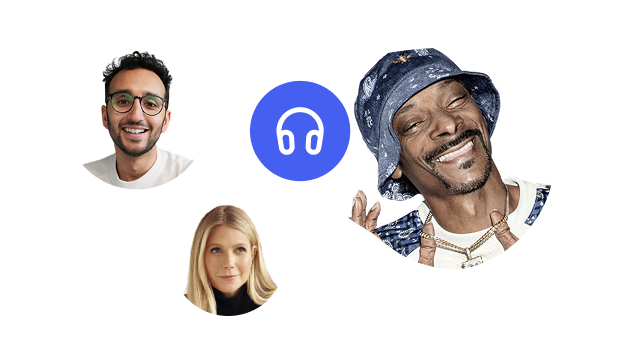Language barriers have always posed a challenge in the business world, particularly in global business where communication across different languages is crucial. The traditional solution of dubbing, while helpful, has its limitations. It's often time-consuming, expensive, and can lose nuance in translation. However, recent developments in artificial intelligence (AI) technology are set to transform this landscape. AI dubbing is a rapidly advancing field that leverages machine learning and natural language processing to overcome these language barriers more effectively.
What is AI dubbing?
AI dubbing is a cutting-edge solution that uses machine translation to convert spoken content from one language to another in real-time. Unlike subtitles, which require viewers to read along, AI dubbing delivers the content in the audience's native language, enhancing comprehension and engagement.
AI-powered dubbing software uses a combination of speech recognition, machine translation, and text to speech synthesis. Leveraging the power of artificial intelligence and machine learning, these systems can comprehend speech in one language, translate it, and then generate a dubbed version in a new language, all in real-time.
The technology has seen an influx of interest from startups, tech giants, and content creators alike, who recognize the potential of AI dubbing to reach a wider audience and break down language barriers.
AI dubbing vs. traditional dubbing
Traditional dubbing involves a long and complex process where a human translator translates the original content, then actors re-record the dialogue in the target language. Not only is this process expensive and time-consuming, it often leads to loss of nuances and can sometimes even result in miscommunication.
On the other hand, AI dubbing can translate and dub content accurately and at scale, delivering high-quality results that preserve the intent and emotion of the original content. It also enables real-time translation, a feature that can be especially beneficial for live events and broadcasts.
Benefits of AI dubbing
The benefits of AI dubbing are many.
- Global reach: AI dubbing helps overcome language barriers, allowing businesses and content creators to reach a wider international audience.
- High quality: AI dubbing delivers high-quality translations that maintain the original content's emotion and context, reducing chances of miscommunication.
- Real-time translation: With the ability to translate and dub content in real-time, AI dubbing is particularly beneficial for live broadcasts and events.
- Cost-effective: Compared to traditional dubbing methods, AI dubbing is more efficient and cost-effective, making it a preferred choice for many.
- Speed and efficiency: AI dubbing processes are faster than traditional methods, enabling rapid conversion of content into multiple languages.
- Integration capabilities: Many AI dubbing tools come with an API, giving businesses and developers more permissions and flexibility to integrate the service into their platforms.
- Accessibility: By translating and dubbing content into the audience's native language, AI dubbing enhances comprehension and engagement, making content more accessible to non-native speakers.
Global brands using AI Dubbing
Several global brands have already embraced AI dubbing. Microsoft, for instance, integrated AI translation services into its platforms, including it social media platform LinkedIn, allowing real-time translation and dubbing of user content.
Amazon leveraged AI dubbing for its Prime Video service. Its AI-powered system can dub content in English, Spanish, Hindi, and many more languages, opening up its content to millions of non-English speaking customers worldwide.
Even in the healthcare sector, AI dubbing has found its niche. A New York-based startup uses AI dubbing to translate medical podcasts into different languages, making vital healthcare information accessible to non-English speakers.
Google Translate, a pioneer in machine translation, has also been exploring the potential of AI dubbing. With its deep learning algorithms and advanced natural language processing, it's shaping up to be a game-changer in this field.
The potential of AI dubbing in overcoming language barriers is huge, and it's exciting to see how far it has come. From tech giants like Microsoft and Amazon to startups in New York and the United Kingdom, the application of AI-powered dubbing has been widespread and successful.
As more businesses, content creators, and entrepreneurs continue to recognize its potential, AI dubbing will undoubtedly become an integral part of the global business landscape, connecting people across different languages and cultures.
According to a co-founder of an AI translation startup featured in Forbes, "AI dubbing is not just about translation—it's about bringing people together. It's about making the world a smaller place." And given the success stories from global brands so far, the future of AI dubbing seems promising indeed.
Broaden your horizons with Speechify AI Dubbing
If you want high-quality and instant AI dubbing, Speechify’s AI Dubbing platform is the solution. In just the click of a button, you can translate audio into over a hundred different languages with AI voices that sound incredibly natural and can be customized to match the original voices. From film studios to leading tech companies, AI dubbing is transforming how people communicate and share content around the world.
Try Speechify AI Dubbing today.





